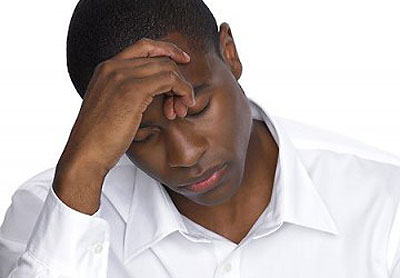Depression is a state of despondency or dejection. Sickness, accidents, death of a loved one, financial crisis... are all situations that can lead to depression. In some people, this may be short-lived. But some continue to suffer from depression.


Depression is a state of despondency or dejection. Sickness, accidents, death of a loved one, financial crisis... are all situations that can lead to depression. In some people, this may be short-lived. But some continue to suffer from depression.
These individuals become apathetic toward life; they stop talking, laughing, eating and sleeping. Some persons may over sleep. In extreme cases, one attempts suicide. Lack of interest in work makes them lose their jobs, which creates financial problems thus adding on to the depression.
A person suffering from depression should be counselled. They have to be told that what has happened cannot be reversed. They need to move ahead with life. An individual has responsibilities and depression should not overshadow it.
They should not be criticised in any manner, otherwise they will not heed to the advice. One has to be verypatient and loving while counselling them.
It is important to keep a person suffering from depression busy, physically and mentally. It is said that "an empty mind is devil’s workshop,” so if they sit idle, their mind tends to wander repeatedly on the tragic event leading to depression.
They should be kept involved in some useful activity all the time. Gardening, reading, making handicrafts, among others, are activities that keep a person occupied and happy.
Vocational rehabilitation of an individual gives them a new chance to get on with life and thus helps cure depression.
Meditation and prayers also help to soothe a depressed mind. Breathing exercises in yoga are useful to help people relax mentally and cure depression.
Alcohol and other addicting substances are often abused by individuals suffering from depression. But they provide only temporary respite from depression. Once their effect finishes off, a person may revert back. They have so many adverse effects on physical health that a person using them is sure to suffer from many health-related problems later.
Drugs used to treat depression do not provide total cure. Tranquilisers and sedatives simply suppress the depression but do not end it completely. Thus on stopping the drugs, there is a high risk of reversal. On long-term use, a person invariably develops some side effects of the drugs. These side effects like stiffness of joints and body, abnormal postures of limbs or face and habituation, become more troublesome to manage than the depression.
An individual suffering from depression does not eat properly; gradually he develops malnutrition and becomes more prone to develop other diseases. Therefore he should be motivated to take a nutritious diet.
People suffering from extreme depression have to be watched closely so that they do not commit suicide.
Taking care of a person suffering from depression is exhausting, especially for victims of major accidents or severe violence as in wars, terrorist attacks or genocides. Care givers have to be careful in their approach to the patient. Steer clear of loose comment that can send a patient back to the depressed state.
It is better to use professional institutional care for short while. At times a person feels more comfortable with sympathetic strangers as compared to relatives.
Cure of a person suffering from depression would be when they start behaving and working normally.
Dr Rachna Pande is a specialist in internal medicine at Ruhengeri Hospital


